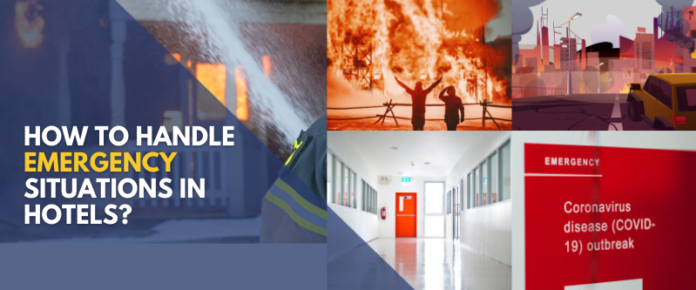Hotels often face various emergencies, from natural disasters to pandemics and other unexpected events. Effective crisis management is essential to ensure the safety and well-being of guests and staff, as well as to minimize operational disruptions. This article outlines strategies for handling crises in hotel settings, offering valuable insights for hotel managers, especially those interested in the best hotel management in Neemuch.
Understanding Crisis Management
Crisis management in hotels involves preparing for, responding to, and recovering from emergencies. This includes natural disasters such as earthquakes, floods, and hurricanes, as well as human-made crises like pandemics, fires, and security threats. By having a robust crisis management plan, hotels can ensure the safety of their guests and staff, maintain their reputation, and resume normal operations as quickly as possible.
Developing a Comprehensive Plan
The foundation of effective crisis management is a comprehensive plan. This plan should include:
- Risk Assessment: Identify potential risks specific to the hotel’s location and operations. For instance, hotels in Neemuch should consider the likelihood of natural disasters in the region.
- Emergency Procedures: Develop clear procedures for different types of emergencies. These should cover evacuation plans, communication protocols, and roles and responsibilities of staff members.
- Training and Drills: Regularly train staff on emergency procedures and conduct drills to ensure everyone knows how to respond in a crisis.
- Communication Strategy: Establish a communication plan to keep guests, staff, and relevant authorities informed during an emergency. This includes having a list of emergency contacts and a protocol for disseminating information quickly and accurately.
Natural Disasters
Natural disasters require specific preparations. Hotels must have:
- Evacuation Plans: Clearly marked exits and evacuation routes should be easily accessible. Regular drills ensure that staff and guests are familiar with these routes.
- Emergency Supplies: Stock emergency supplies such as first-aid kits, flashlights, blankets, and non-perishable food items. These should be easily accessible in case of an emergency.
- Structural Safety: Ensure that the hotel’s infrastructure can withstand natural disasters typical to the area. This may involve regular building inspections and necessary reinforcements.
Pandemics and Health Crises
The COVID-19 pandemic highlighted the importance of health crisis preparedness. Hotels should:
- Hygiene Protocols: Implement stringent hygiene and sanitation protocols. Regular cleaning and disinfection, especially in high-touch areas, are crucial.
- Health Screenings: Conduct health screenings for guests and staff. Temperature checks and health declarations can help identify potential cases early.
- Isolation Procedures: Have procedures in place to isolate and care for guests or staff who show symptoms of contagious illnesses.
Security Threats
Security threats, including terrorism and other violent acts, require hotels to:
- Enhance Security Measures: Increase surveillance with CCTV cameras, security personnel, and controlled access points.
- Guest and Staff Awareness: Train staff and educate guests on recognizing and reporting suspicious activities.
- Emergency Response: Develop a coordinated response plan with local law enforcement and emergency services.
Recovery and Post-Crisis Management
After a crisis, the focus shifts to recovery. This includes:
- Damage Assessment: Evaluate the extent of the damage and prioritize repairs to restore normal operations.
- Support Services: Provide support to guests and staff affected by the crisis, including counseling services and assistance with travel arrangements.
- Review and Improve: Analyze the response to the crisis, identify areas for improvement, and update the crisis management plan accordingly.
Conclusion
Effective crisis management is vital for hotels to handle emergencies and unexpected events successfully. By developing a comprehensive plan, preparing for various types of crises, and focusing on recovery, hotels can protect their guests and staff while maintaining their reputation. For those looking into the best hotel management college in Neemuch, understanding and implementing these strategies is crucial for ensuring safety and resilience in the face of crises.



